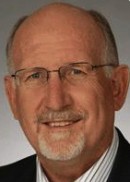My Word: Don’t allow proselytizing at public schools
By James Coffin
On Thursday, while people across the United States were collectively praying for a divine blessing on our nation, volunteers from the Central Florida Freethought Community were disseminating atheistic materials to students in Orange County public high schools.
As a Christian clergyman and the executive director of the Interfaith Council of Central Florida, I’m clearly on the opposite side from the literature distributors when it comes to belief in God. I don’t want atheistic materials distributed in public schools.
But here’s the paradox: The organizers of the distribution argue that public schools shouldn’t be the venue for their — or anyone else’s — handouts. They contend that whether the proselytizers are Christian, Muslim, a snake-handling sect or atheists, public schools should be off-limits for all such activity. And they think the majority agree.
If you’re a Christian, do you want your children to be proselytized at their public school by other religions or by atheists — even if it’s done passively and the promotional materials are simply made available?
If you adhere to a non-Christian religion, or you’re an atheist, do you want your children proselytized at their public school by Christians, even if done passively?
If you’re a public-school administrator, do you want your already-overflowing schedule to become even fuller because you’re having to decide which materials from which spiritual ideologies should or shouldn’t be distributed?
If you’re a teacher, do you want to referee the disputes engendered by the presence of such materials? Especially when you have to be so careful not to promote or denigrate any specific faith.
Chief organizer David Williamson says the literature distribution was to make a point: While people may not object to having their own religious materials distributed, many don’t want to grant the same privilege to everyone. It’s a valid observation.
Fairness, equal access and the nonestablishment clause of the First Amendment all suggest that students in public schools should be accessible to all proselytizers or to none.
Making public schools off-limits to all officially sanctioned proselytizing would have the decided advantage of allowing educators to focus on the prime educational objectives for which they receive their tax-funded salaries.
James Coffin is executive director of the Interfaith Council of Central Florida.

